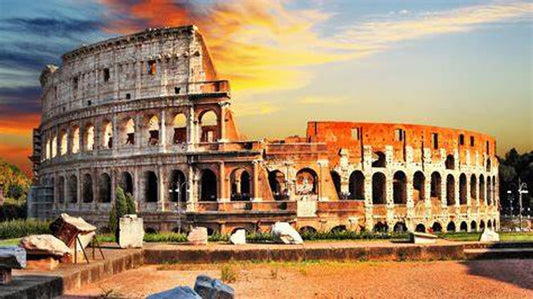Table of Contents
-
Key Takeaways
-
Understanding Spain's Dual Citizenship Laws
-
Pathways to Acquiring Spanish Nationality
-
Preserving Your Spanish Nationality
-
The Process of Obtaining Dual Citizenship in Spain
-
Benefits and Responsibilities of Holding Dual Citizenship
-
Accessing Consular Support as a Dual National
-
Applying for Spanish Residency as a Path to Nationality
-
The Spain Residence by Investment Program
-
Summary
Does Spain Allow Dual Citizenship in 2024? Navigating Dual Nationality
Key Takeaways
- Spain's dual citizenship laws offer various avenues for obtaining nationality, including descent, naturalization, marriage, and option for those with Spanish connections, with specific bilateral agreements allowing citizens from certain countries to retain their original nationality.
- Prospective applicants must carefully compile a range of required documentation and pass both language and cultural tests to successfully obtain dual Spanish citizenship, except for those with disabilities who may be eligible for waivers.
- Dual citizens must navigate both the privileges and legal responsibilities that accompany their status in Spain and their other country of citizenship, which includes preserving Spanish nationality, adhering to taxation laws, and potentially engaging in military service.
Understanding Spain's Dual Citizenship Laws
Spain's dual citizenship laws are a complex tapestry, interwoven with exceptions and bilateral agreements that make it both restrictive and accommodating. These laws, steeped in historical ties and contemporary legal frameworks, have carved out pathways for those with Spanish lineage or connections to certain nations.
The pillars of Spanish nationality stand firm on the robust foundation of the Spanish Civil Code and Civil Registry Law, both edifices of legal doctrine that dictate the terms of becoming and remaining a Spanish national under the umbrella of Spanish law. The Directorate General for Registers and Notaries is the author of these binding tales that guide every step towards obtaining dual citizenship in Spain.
Countries with Dual Citizenship Agreements with Spain
Spain's embrace extends across the Atlantic, offering a fraternal handshake to its former colonies and selected allies. This kinship is enshrined in dual citizenship agreements with nations united by a shared history or language. The countries that stand in this privileged circle include:
- Iberian neighbors, Andorra and Portugal
- The Philippines
- Equatorial Guinea
- A cohort of Latin American countries
For Spanish citizens of these nations, the Spanish roots run deep, allowing them to acquire Spanish nationality without severing their original ties, after a mere two years of legal residence in Spain.
Italy's Flat Tax: A Lucrative Opportunity for Wealthy Expats
Italy's Flat Tax Regime: A Comprehensive Guide to Pre-Approval for High-Net-Worth Individuals Understanding Italy's Attractive Tax Opportunity for Wealthy Expatriates Italy has emerged as a compelling destination for high-net-worth individuals... Keep Reading →
Pathways to Acquiring Spanish Nationality
The quest for Spanish nationality is not a singular path but a network of routes, each tailored to the traveler's origin and story. Whether it's the well-trodden path of naturalization, the lineage-led route of descent, the bond of marriage, or the unique circumstances that grant citizenship by option, the journey towards dual citizenship in Spain is as diverse as the individuals embarking upon it.
Naturalization: A Common Route to Spanish Citizenship
For those not born under the Spanish sun, naturalization shines as the beacon of hope. It is the process that beckons with the promise of citizenship to those who have laid down roots and woven their lives into the fabric of Spain for a decade. Yet, the country shows compassion to those seeking refuge, offering them a haven and the chance to call Spain home after five years.
Citizenship by Option for Those with Spanish Connections
The bloodlines of Spain whisper through generations, offering a claim to those with Spanish connections to embrace the nationality of their ancestors. This special privilege, a citizenship by option, is a nod to the children adopted by Spanish hearts and the descendants of Spaniards whose lineage has stretched beyond the Iberian Peninsula. Yet, this bond must be claimed and declared within a narrow window of time, lest it slips away into the annals of bureaucracy.
Preserving Your Spanish Nationality
The tapestry of Spanish nationality can unravel if not meticulously maintained. The law demands a declaration of intent to preserve this prized status within three years of acquiring a new nationality. This is the sentinel guarding against the accidental forfeiture of Spanish citizenship, a reminder to those who have ventured far from the Spanish shores to uphold their connection to the motherland.
The Role of the Civil Registry in Maintaining Spanish Nationality
The Civil Registry stands as the custodian of Spanish nationality, a ledger where declarations of intent are etched to anchor one's Spanish identity. It is here that the promise to retain Spanish nationality must be recorded, a formal gesture that ties one's fate to the nation.
The Process of Obtaining Dual Citizenship in Spain
Embarking on the journey to obtain dual citizenship in Spain is akin to navigating the bureaucratic labyrinth, where patience and precision are your trusted allies. From the digital byways of the SEDE electrónica to the hallowed halls of the civil registry, applicants must traverse a path laden with paperwork and procedural rites. It's a quest that spans the better part of a year, demanding a meticulous compilation of documents and successful passage through language and cultural tests.
Required Documentation for Dual Citizenship Applications
The quest for dual citizenship in Spain is paved with paperwork, each document a stepping stone towards the ultimate goal. The required documents for obtaining a Spanish passport include:
- A valid passport
- An official birth certificate
- Evidence of legal residence
- A clean slate from a criminal background check
- Health insurance coverage
- Proof of passing citizenship tests
Taking the Spanish Language Exam and Citizenship Tests
The mastery of the Spanish language and the understanding of Spain's cultural tapestry are the twin trials that await citizenship aspirants. The DELE Spanish language exam, a challenge that demands a proficiency of at least an A2 level, stands as the first gatekeeper. Following this, the CCSE sociocultural exam beckons, testing one's knowledge of Spain's rich history and societal norms.
Yet, for those burdened by disabilities or other incapacities, mercy in the form of waivers may be granted, easing their passage through these rigorous tests.
Benefits and Responsibilities of Holding Dual Citizenship
The privilege of holding dual citizenship in Spain unfurls a canvas of possibilities – the right to move freely within the country, the entitlement to its public services, and the security of property ownership in both nations. Yet, this dual identity also weaves a complex web of legal responsibilities, tethering nationals to the laws and obligations of both Spain and their second homeland.
How Dual Nationality Affects Your Legal Status
The mantle of dual nationality drapes over one's legal status, cloaking it in additional layers of obligations and rights. From the battlefields of taxation to the civic arenas of political participation, dual citizens must wield their rights and responsibilities with equal fervor in both Spain and their other nation of citizenship. Military service, if summoned by either country, and barriers to certain employment opportunities due to divided allegiances are the trials that dual nationals may face.
Navigating Renunciation of Previous Nationality
As the Spanish sun sets on one's former nationality, the renunciation of previous citizenship often marks the dawn of a new Spanish identity. This ceremonial shedding of one's original national skin is a rite of passage typically required to embrace Spanish nationality fully. However, the waters of renunciation are not always clear, as the relinquishment of one's previous citizenship is subject to the legal currents of their homeland, which may not recognize this act of Spanish acquisition.
When Renunciation Is Not Necessary
Yet, not all who travel the road to Spanish nationality must forsake their original citizenship. There are sanctuaries within the law where the heart of one's homeland can be retained, thanks to dual citizenship agreements or specific conditions that shield one's original nationality. This exception is a beacon for those from nations like the United States and the United Kingdom, where the bond of their birthright citizenship endures, even as they pledge allegiance to the Spanish flag.
Accessing Consular Support as a Dual National
The dual national, a traveler between worlds, is never without a haven. The Spanish consulate, an embassy of support, stands ready to extend a helping hand, whether it be through the digital portals of the SEDE electrónica or the warm embrace of a consulate's welcome. Diplomatic assistance is a right that spans the globe, ensuring that dual nationals receive the protection and guidance of both Spain and their other country of citizenship, wherever their journeys may take them.
Applying for Spanish Residency as a Path to Nationality
The golden thread that weaves through the fabric of Spanish dual citizenship begins with a single, yet crucial, stitch – Spanish residency. Securing a place within the Spanish borders is the first step in a larger tapestry that eventually culminates in dual nationality. The length of residency required varies, a reflection of each individual's unique narrative. Once residency is established, the doors to citizenship beckon, inviting those who have made Spain their home to take the final steps towards a dual identity.
The Spain Residence by Investment Program
The allure of Spain's sun-kissed shores and rich cultural heritage can be a reality through the Residence by Investment Program – a golden ticket to residency and, potentially, citizenship. This program is a siren call to those who dream of investing their fortunes into the Spanish economy, a mutually beneficial exchange that opens the doors to a life amidst Iberian splendor.
Benefits of a Spanish Golden Visa
The Spanish golden visa is not merely a document but a key to a life replete with opportunities and privileges. It is the promise of a high quality of life, the inclusion of one's family under the Spanish sun, and access to a healthcare and education system known for its excellence. For those with historical and cultural ties, the golden visa serves as a bridge to Spanish citizenship after a mere two years of residence. It's a gateway to Europe's vibrant heart, where languages and cultures blend seamlessly into the educational tapestry of renowned international schools.
Spain Golden Visa Requirements
The golden visa, Spain's token of invitation to investors, comes with its own set of requirements – a pledge in the form of significant financial investment. Be it through the acquisition of real estate, a leap of faith into financial institutions, or the purchase of government bonds, the investment must meet the threshold set by the Spanish authorities. Documentation of this investment is the cornerstone of the application process, a testament to one's commitment to the Spanish economy and society.
Procedures and Time Frame of the Spain Golden Visa
The journey to obtain a Spanish golden visa is a meticulous process, unfolding in two distinct stages that transform the investor from a hopeful applicant to a resident with a future ripe for citizenship. The initial residence visa serves as the entryway, followed by the residence permit that cements one's place in Spain. No minimum stay is required to maintain this status, but the inaugural visit to Spain is a necessary rite of passage. With each step carefully timed and each document scrutinized, the golden visa is a delicate balance of patience and precision.
Summary
The odyssey of obtaining Spanish dual citizenship is a journey of meticulous planning, legal navigation, and cultural integration. From the complexities of the legal framework to the pathways of naturalization and investment, the pursuit of dual nationality is as intricate as it is rewarding. With a Spanish passport comes not only the freedom to explore new horizons but also the responsibilities that anchor one's identity to multiple nations. As the sun sets on this expedition, may the insights shared illuminate your path towards dual citizenship with clarity and confidence.






